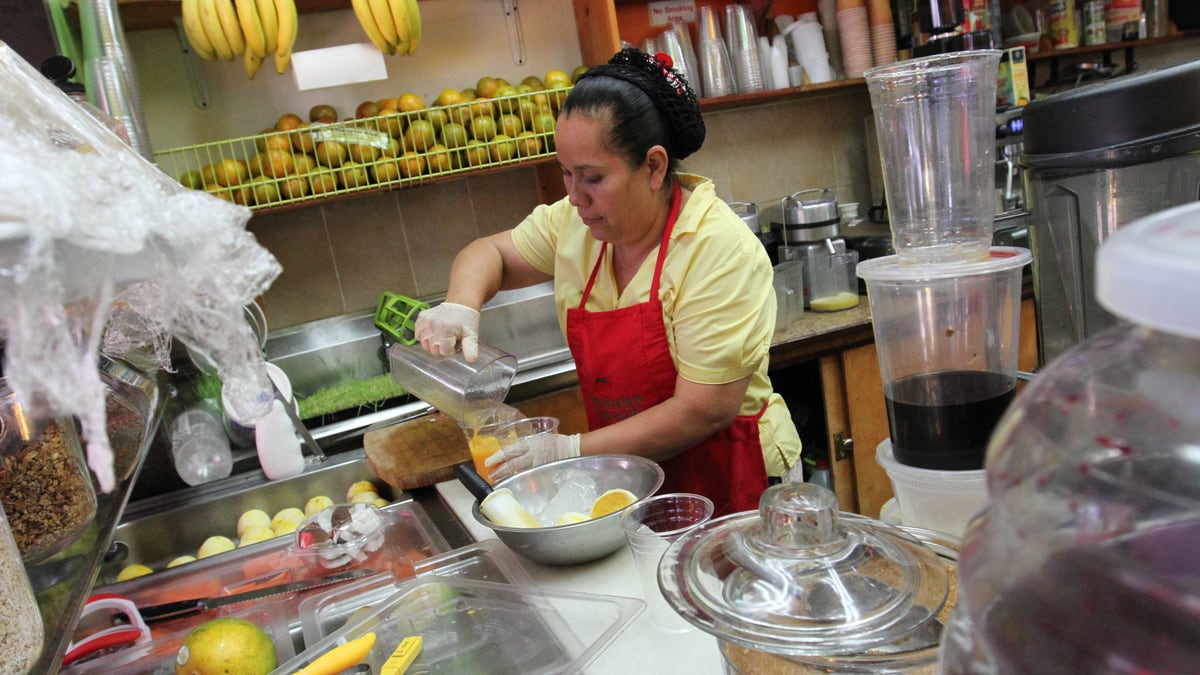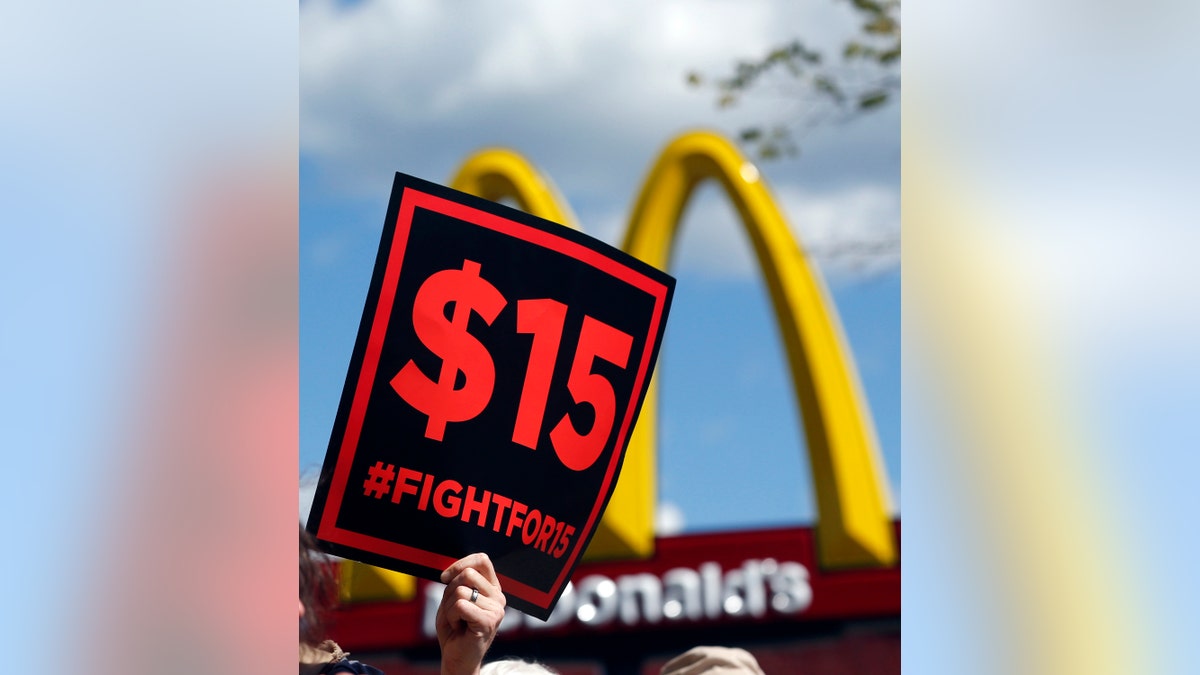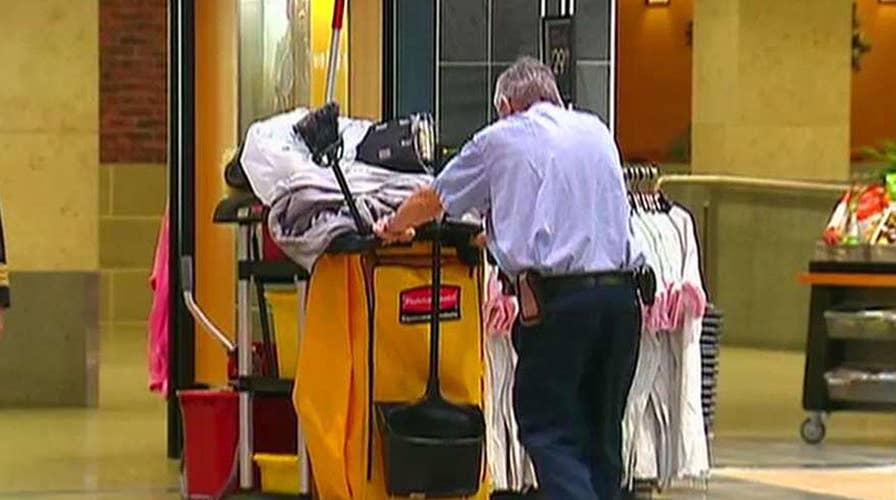Seattle's first-in-the-nation $15 per hour minimum wage law is hurting the workers it aimed to help, a new study has found.
The working poor are making more per hour but taking home less pay. The University of Washington paper asserts the new wages boosted worker pay by 3 percent, but also resulted in a 9-percent reduction in hours and a $125 cut to the monthly paychecks.
The law also cost the city 5,000 jobs, the report said.

Celina Alvarez, 51, works at Jugueria de regreso al Eden, her shop in the Queens borough of New York, Monday Aug. 3, 2015. As a campaign to raise the minimum wage as high as $15 has rolled to victory in such places as Seattle, Los Angeles and New York, it has bumped up against a harsh reality: Plenty of scofflaw businesses donât pay the legal minimum now and probably wonât pay the new, higher wages either. (AP Photo/Tina Fineberg) (AP)
Seattle's minimum wage ordinance, passed by the Seattle City Council and signed by Mayor Ed Murray in 2014, was sold as a way to close the income inequality gap and help those struggling at the bottom of the economic ladder. More than a dozen cities and counties, mostly in California and New York, followed suit.
MINIMUM WAGE HIKES MAY MALIGN FAST-FOOD JOBS AND DISCOUNT SHOPPERS
"This is a two-edged sword," said Jacob Vigdor, one of the team of researchers studying the issues for Seattle. "And if you raise this minimum wage the way Seattle did you run the risk of actually taking money away from the people you are trying to help."

FILE - In this July 22, 2015 file photo, supporters of a $15 minimum wage for fast food workers rally in front of a McDonald's in Albany, N.Y. Millions of workers across the U.S. will see their pay increase as 19 states bump up their minimum wages as the new year begins. California, New York and Arizona are among the states with increases taking effect Saturday, Dec. 31, 2016 or Sunday, Jan. 1, 2017. New York state is taking a regional approach, with the wage rising to $11 in New York City, $10 in its suburbs and $9.70 upstate. (AP Photo/Mike Groll, File) (AP)
The study was published as a "working paper" on Monday by the National Bureau of Economic Research.
A national campaign called "Fight for $15" aims to bring higher wages across the country by worker strikes and demonstrations.
The Seattle mayor tweeted his rebuttal of the study, and previously cited Seattle's growing economy and low unemployment as evidence that higher wages are not bad for the city.
SEATTLE SEES FALLOUT FROM $15 MINIMUM WAGE, AS OTHER CITIES FOLLOW SUIT
"The facts: Seattle's economy is booming, with wages increasing & restaurants & retail among our fastest growing job sectors," he wrote on Twitter.
But Louise Chernin, CEO of the Greater Seattle Business Association, said jobs should be increasing at a higher rate.
"You'd think with the amount of people moving into Seattle and the number of businesses and restaurants that are opening, we'd be hiring more people," she said. "It just shows me they are struggling."
The study shows not everybody is struggling, however. Job growth in the city is strong, up 13 percent in the past year – but only for those making more than $19 per hour.













































